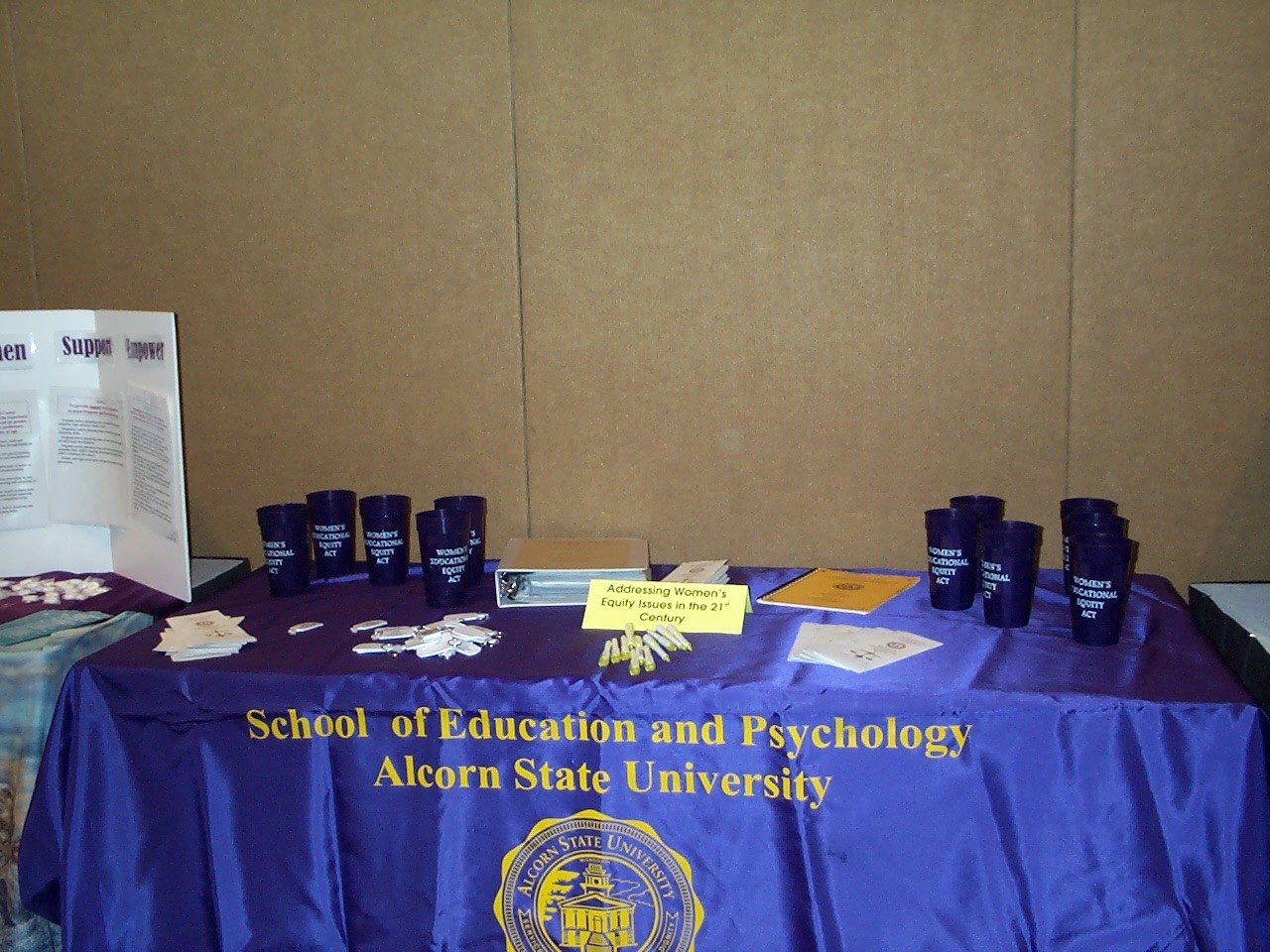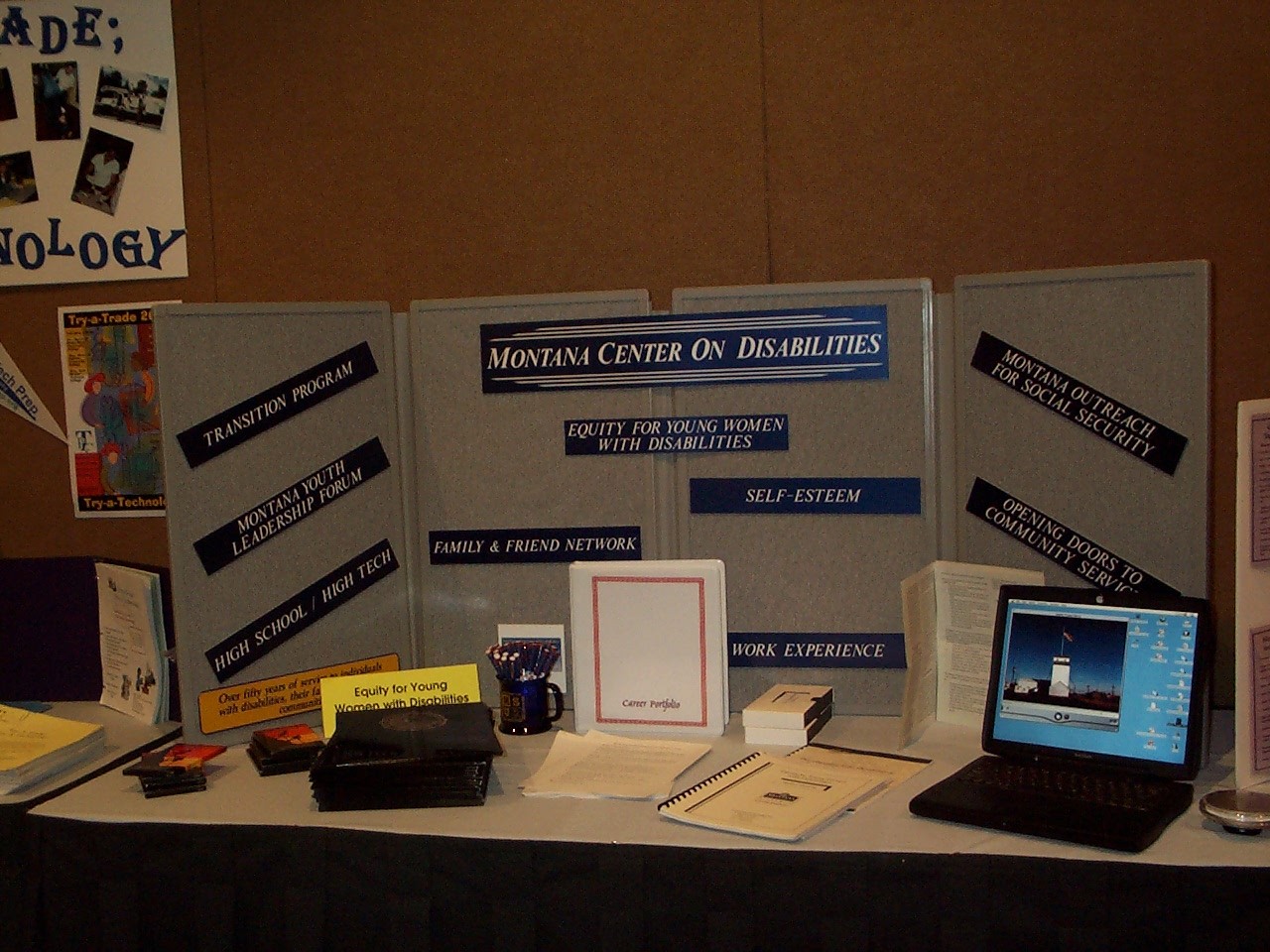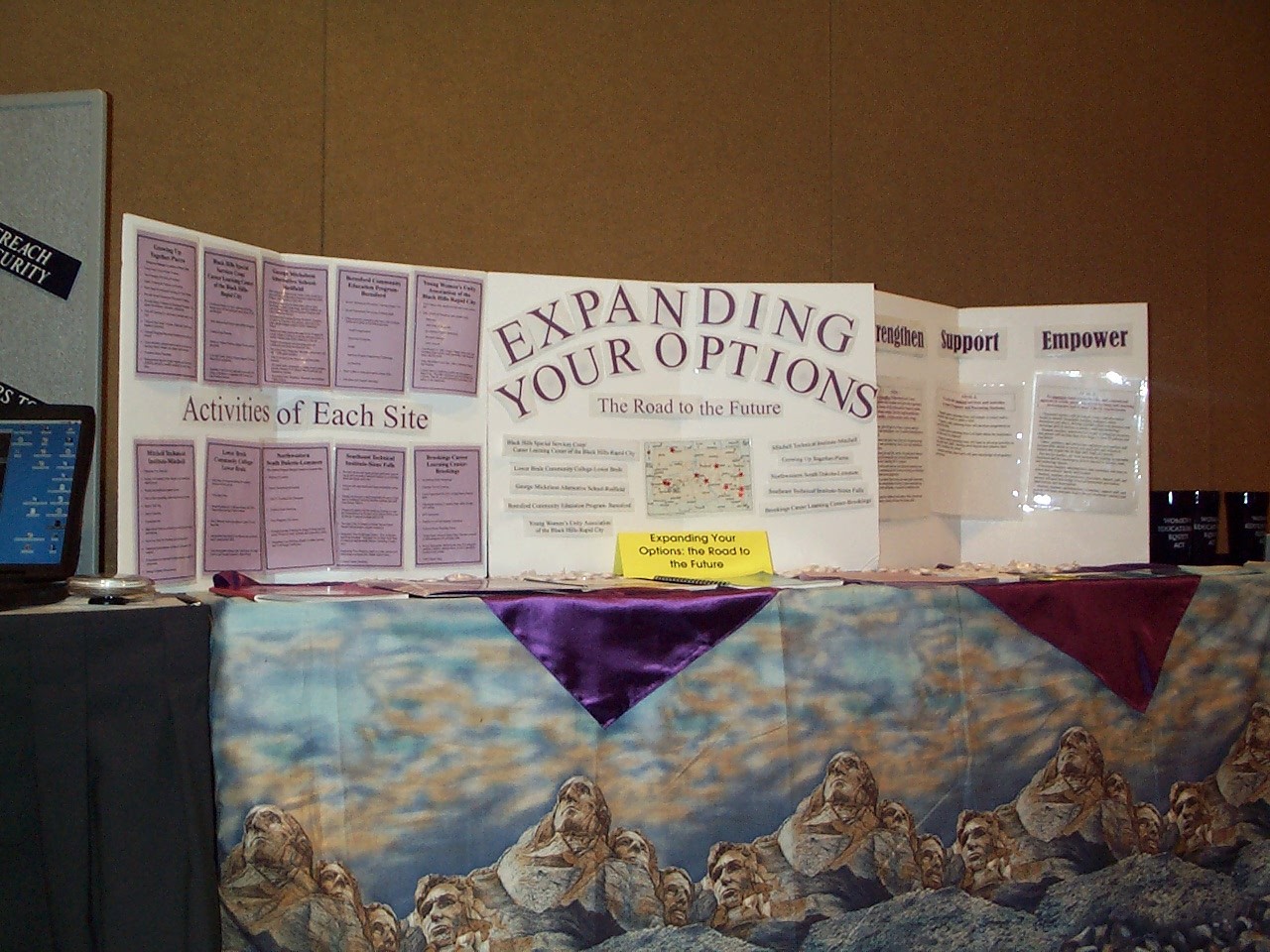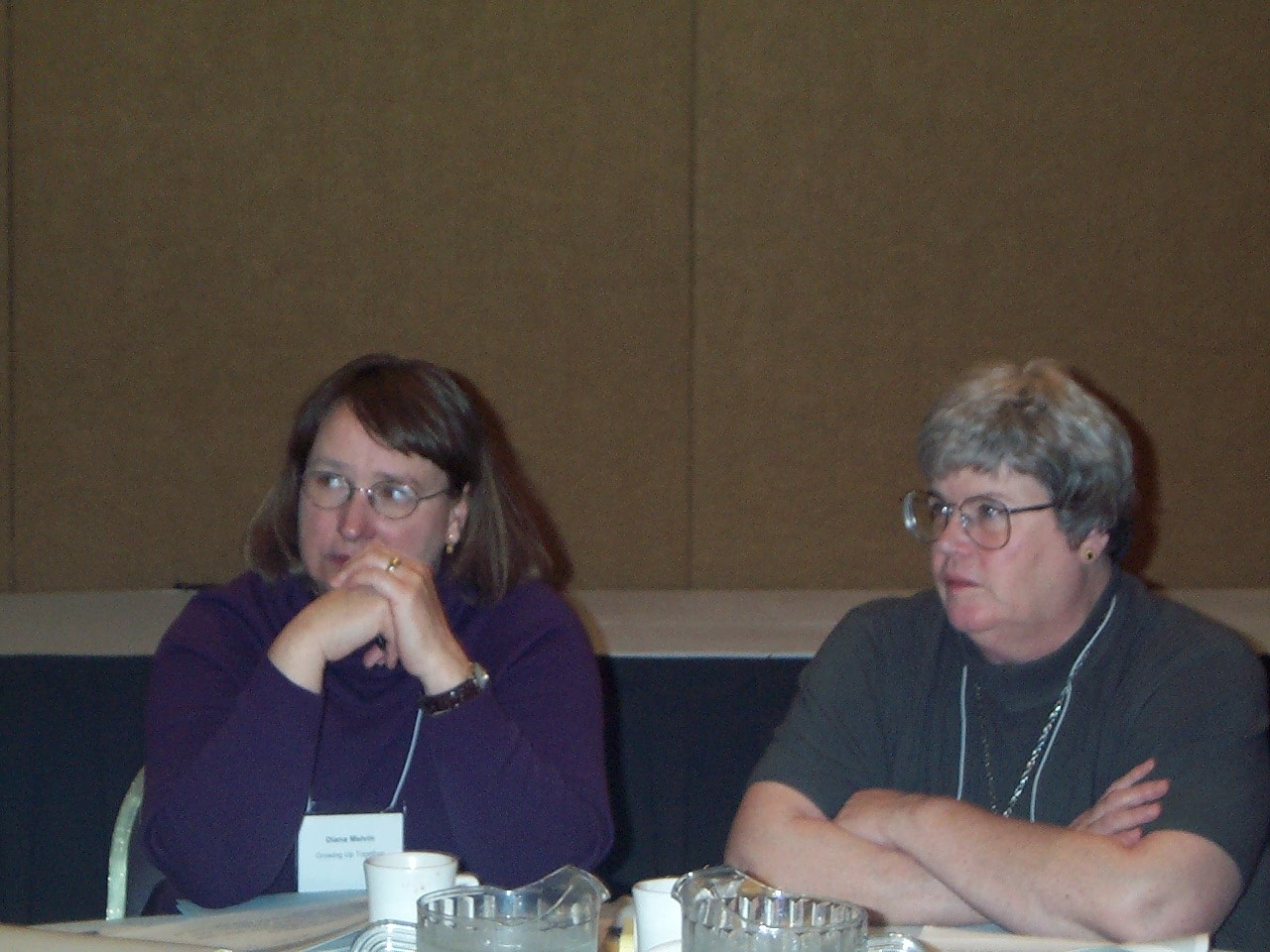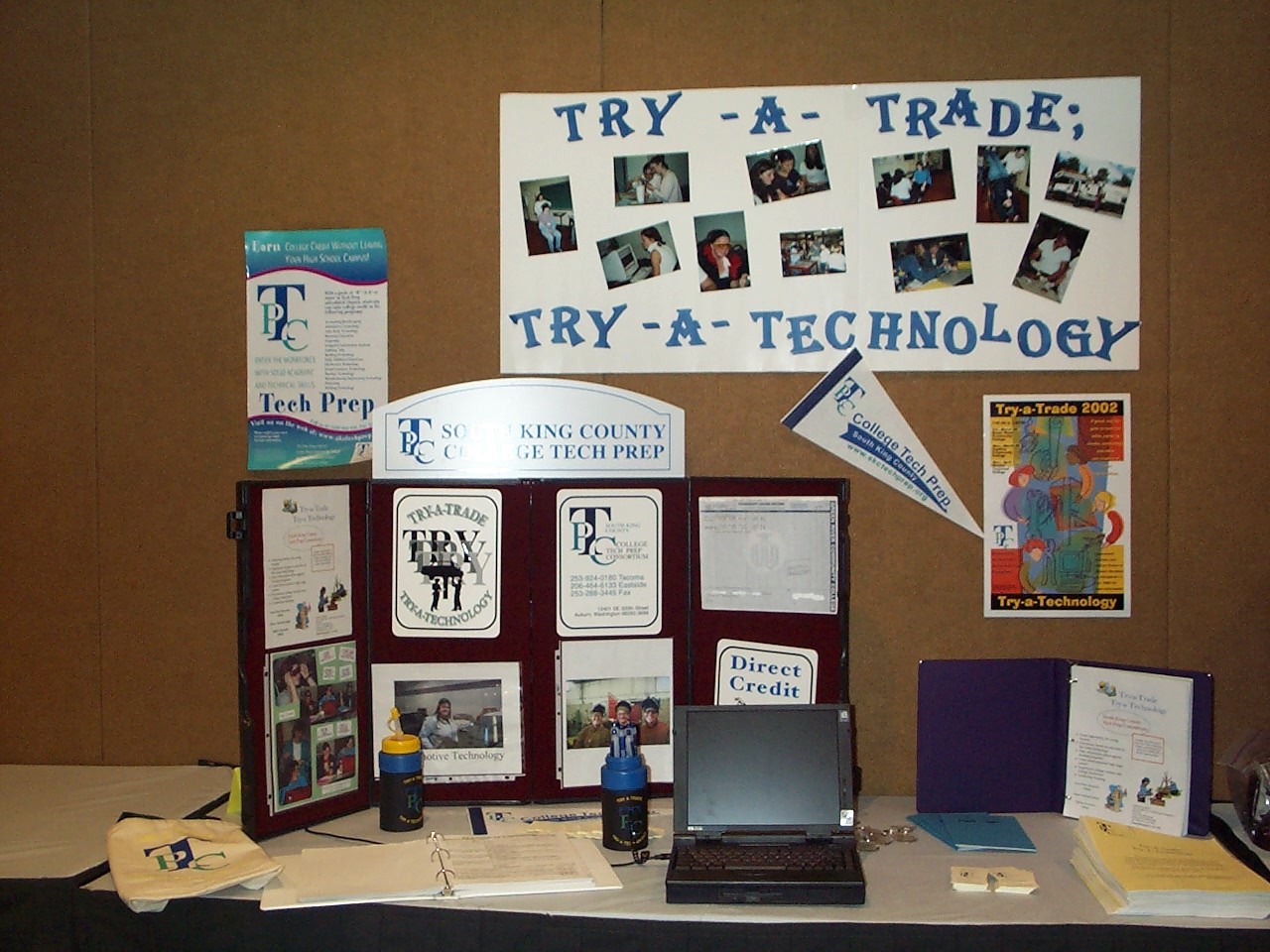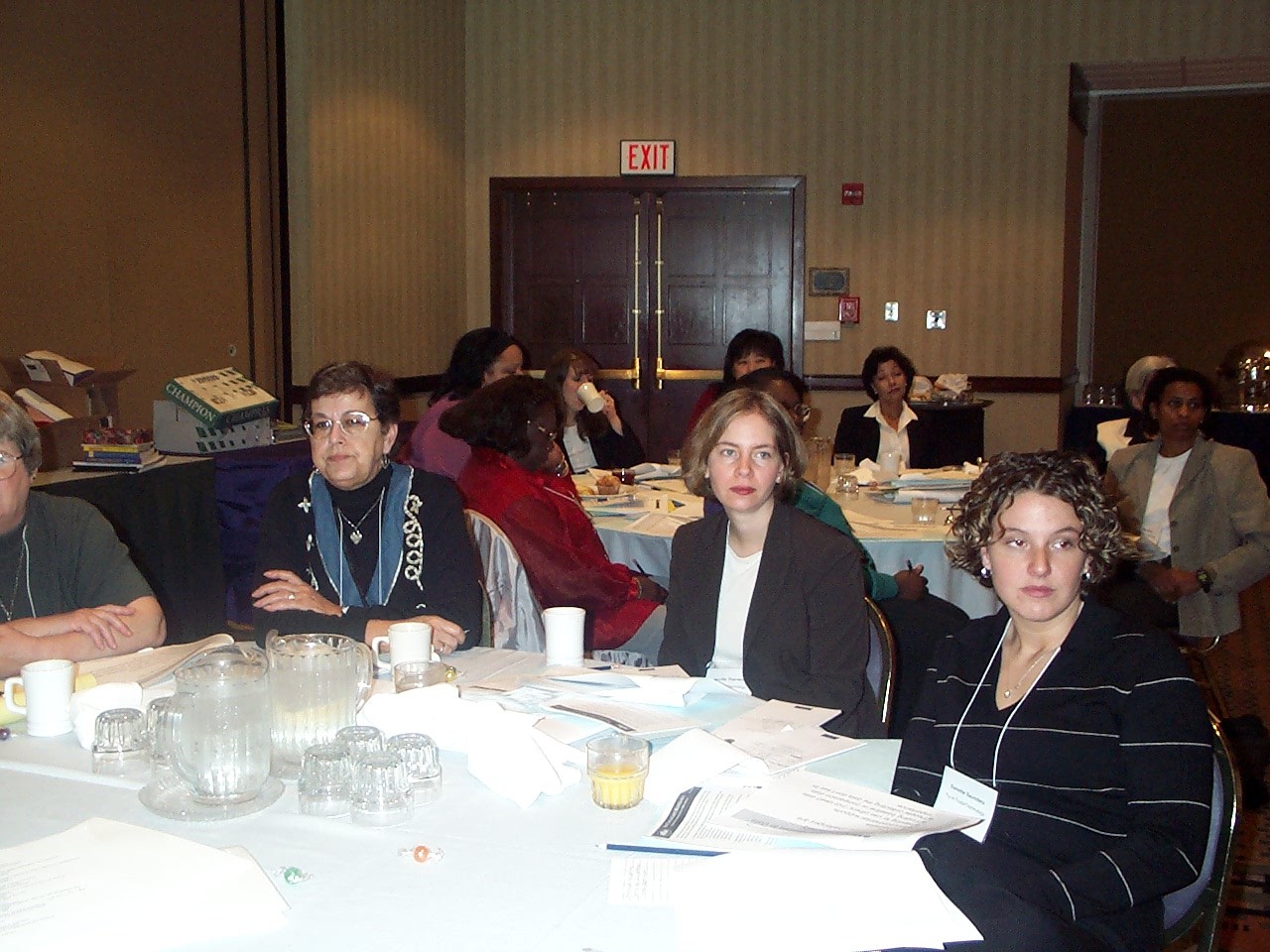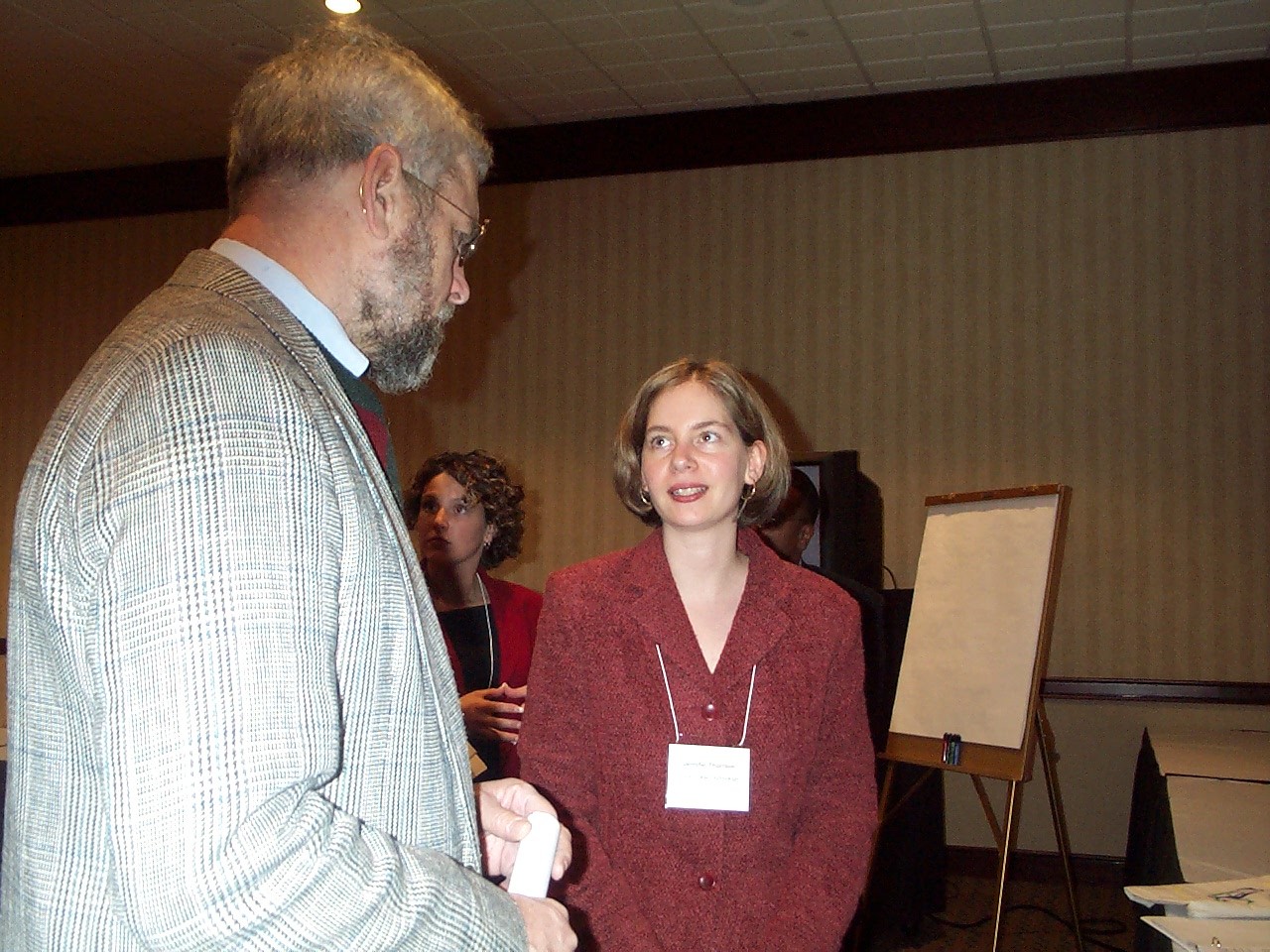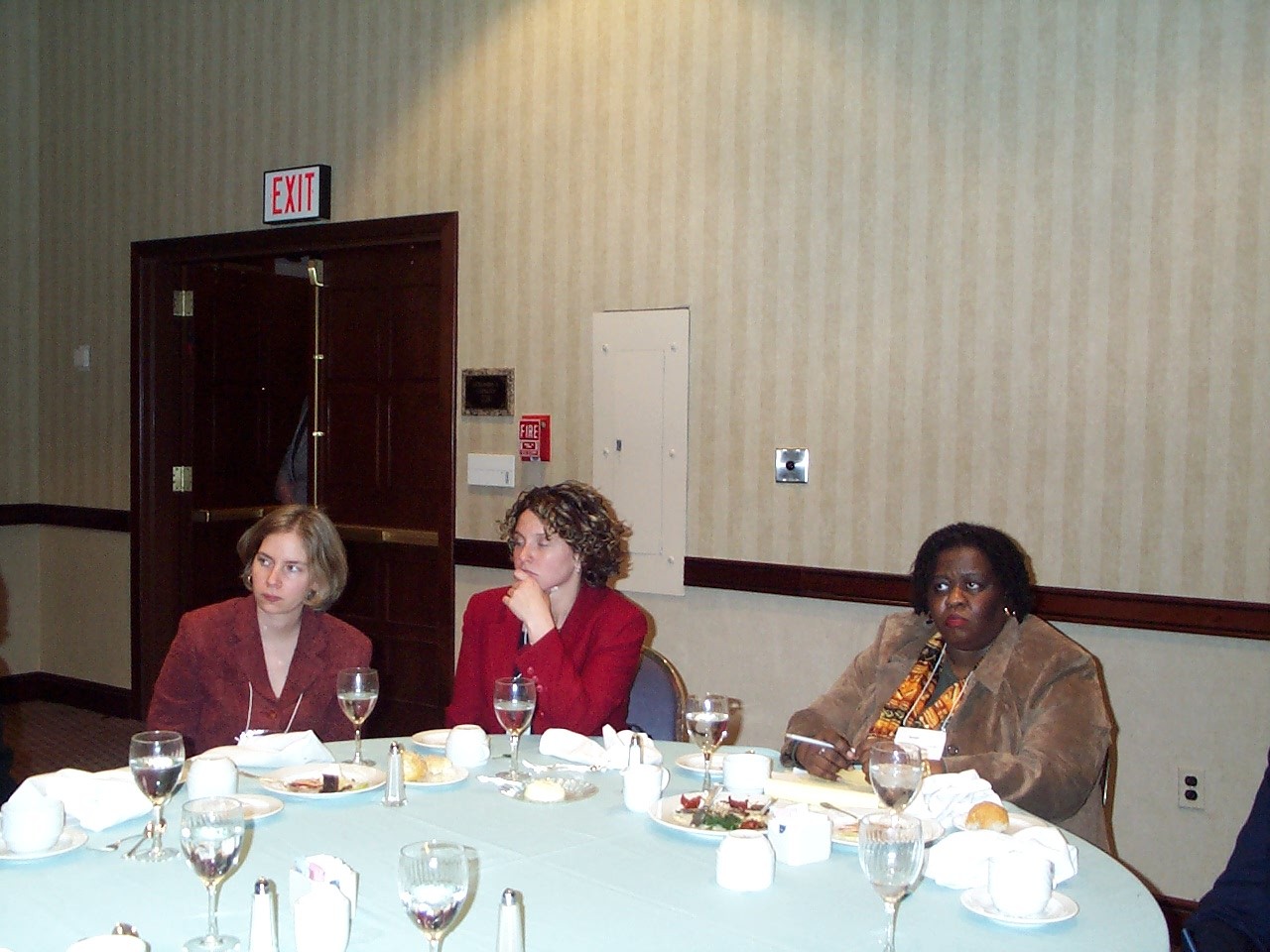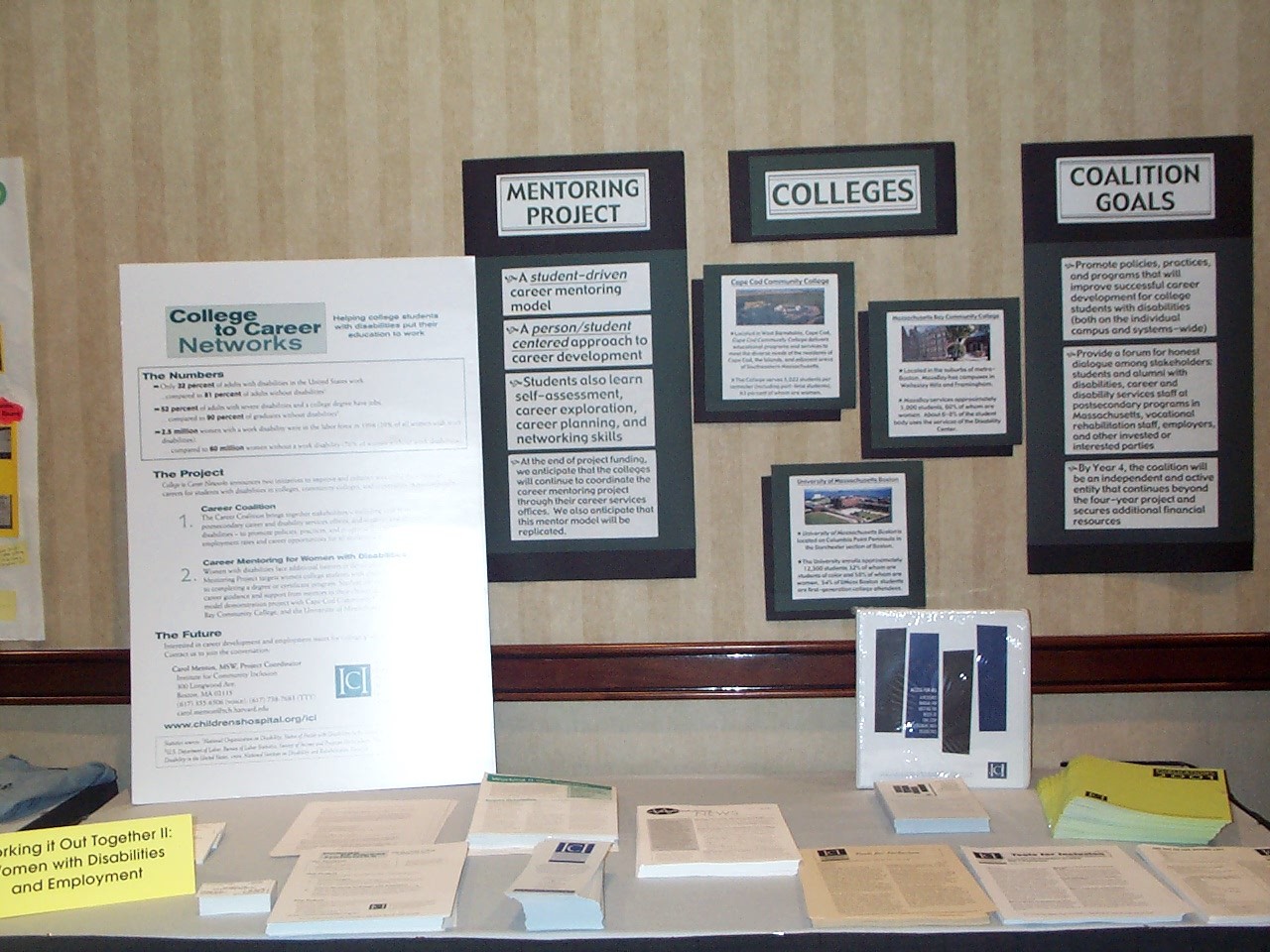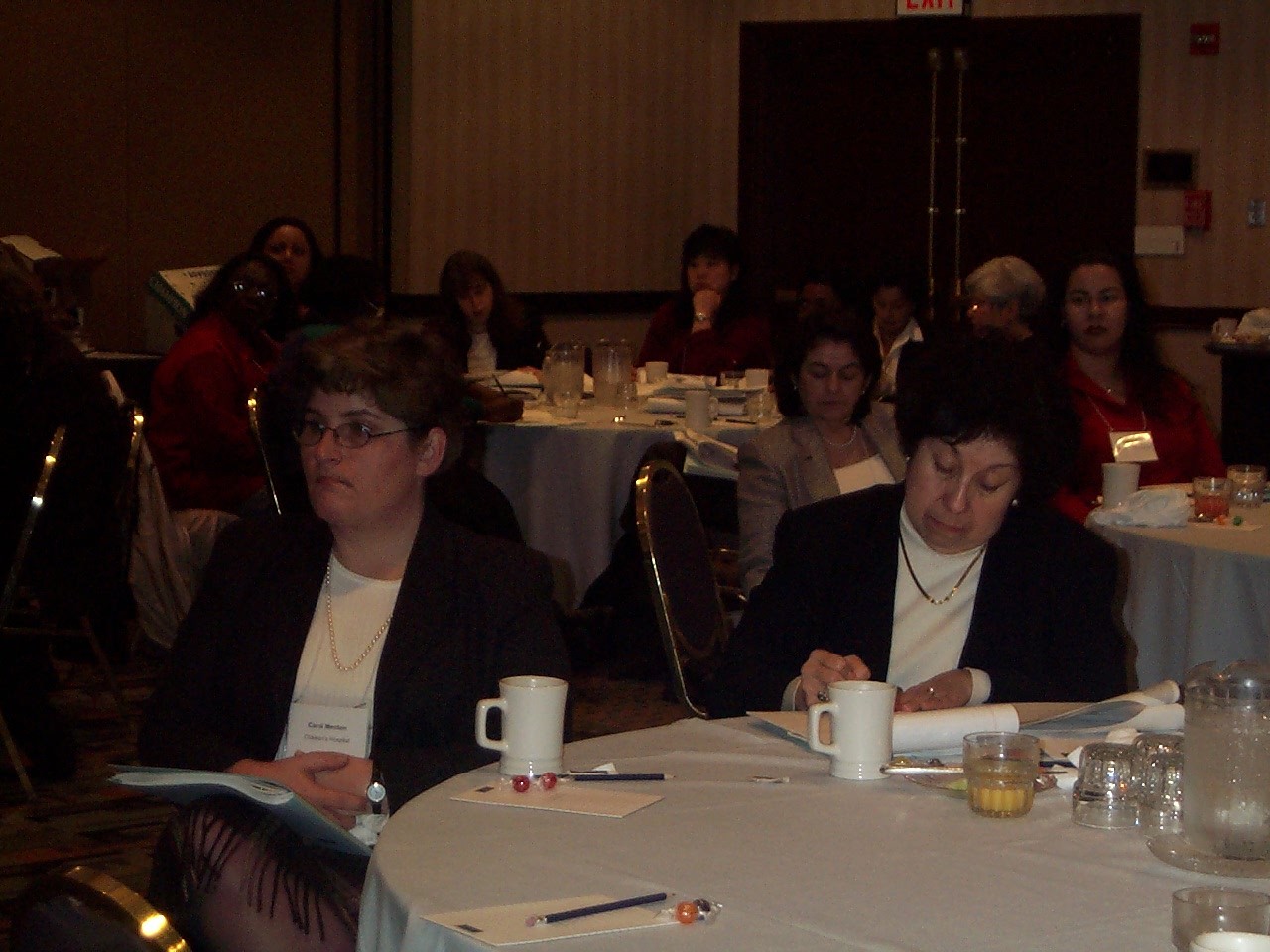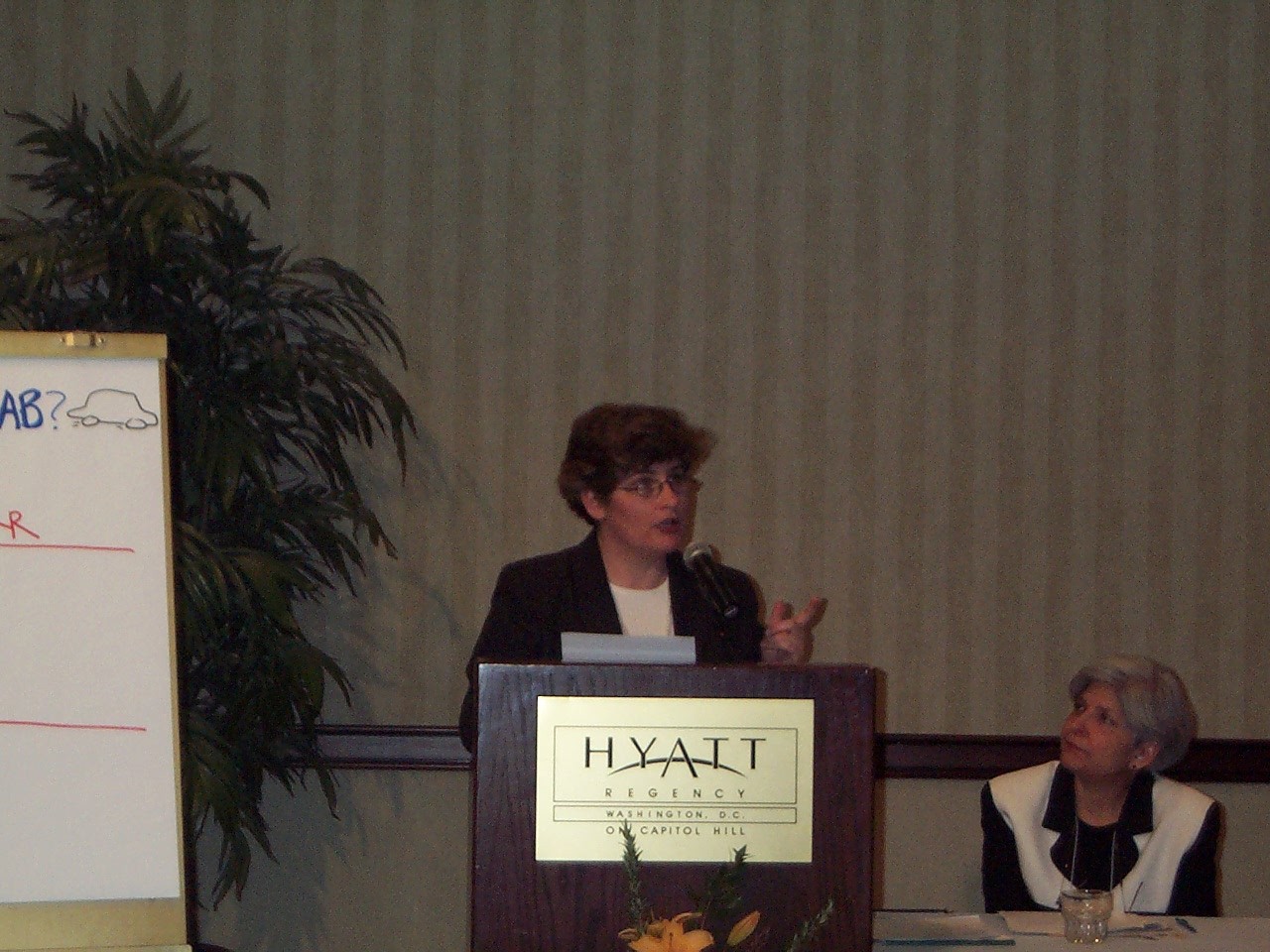This site is no longer active.
WEEA
Technical Assistance Conference
January 23-24, 2002
Career
Education
Click photos for larger view.
Addressing Women’s Equity Issues in the 21st
Century Project
Alcorn, Mississippi
Expo display
This project seeks to improve the participants’ overall quality of life by enhancing their self-esteem, job training skills, and work force preparation through a school-to-work program. The four-year project (1999-2003) is housed at Alcorn State University, the oldest historically Black land-grant university in the U.S. The surrounding area in the southwest region of Mississippi is one of the most economically and socially depressed rural areas in the country. The project promotes gender equity in education in the fourteen counties served by the university through its cooperative extension program.
****
Equity for Young Women with Disabilities Project
Billings, Montana
web: www.msubillings.edu/mtcd/equity/default
The project is developing a more effective curriculum and transition-planning model to increase gender equity in employment and career preparation for young women with disabilities. The four-year program (1999-2003) seeks to increase the work experiences of these students during high school, introduce them to nontraditional occupations for women, bring them in contact with adult mentors, and develop training materials on how to engage friends and family to develop vocational contacts.
Enhancing the participants’ self-esteem is a core component of this program located at the Montana Center on Disabilities at Montana State University. Mentoring—connecting high school women with disabilities with successfully employed women—is one means the project uses to accomplish this goal. However, finding women who could be strong mentors has also been one of the project’s greatest challenges. It has responded by matching one mentor with up to four high school students, rather than the one-to-one matches it had intended. One of the surprising lessons learned by the project thus far is that mentors need training in disability awareness and self-advocacy themselves. An unexpected outcome has been the creation of a support network among the mentors.
****
Expanding Your Options: The Road to the Future
Pierre, South Dakota
|
Expo display |
Project
Manager Diana Melvin and WEEA Associate Kathy Rigsby, Gender Equity
Specialist at the Interwest Equity Assistance Center
|
The project is developing train-the-trainer workshops on issues such as creating equitable classrooms, sexual harassment prevention, conducting equity climate self-evaluations, and developing life action plans. The project will also assist the South Dakota school-to-work system by developing models for equity and career awareness, career exploration, and career planning for all K-14 students, with an emphasis on developing equitable learning environments and promoting high-wage careers that lead to self-sufficiency.
The target population is quite broad and includes girls in K-12, pregnant and parenting teens, school dropouts, alternative school students, single mothers, and displaced homemakers. There is also an emphasis on serving Native American and other women and girls of color. Economic and educational needs are the primary criteria for choosing participants. The project also serves educators and administrators including classroom teachers, counselors, school administrators, support staff, personnel at the Bureau of Indian Affairs and tribal schools, parents and community members.
The five-year project (2000-2005) is a collaboration of South Dakota Women Work!, a nonprofit organization dedicated to empowering women from diverse backgrounds and assisting them to achieve economic self-sufficiency, and Southeast Technical Institute, a two-year institution whose mission is to develop and provide high-quality technical education.
****
Try a Trade, Try a Technology Project
Auburn, Washington
|
Expo
display
|
Program Director Jennifer Thornton and Program
Coordinator Danette Saunders
|
|
School
Improvement Programs Program Officer Paul Edwards and Try a Trade
Program Director Jennifer Thornton
|
Try
a Trade Program Director Jennifer Thornton, Try a Trade Program
Coordinator Danette Saunders, and WEEA Equity Resource Center Communications
Director Susan Smith
|
The project is working to increase the number of women enrolled in trades and technology-related postsecondary programs and apprenticeships, areas where women continue to be underrepresented. In 1999, for example, women were awarded only 7 percent (31,208) of the 432,000 registered apprenticeship training positions in the U.S. Established by the South King County Tech Prep Consortium and Green River Community College, this four-year project (1998-2002) addresses three critical needs: limited exposure in K-12 to trades, technology, and other nontraditional career information for young women; teachers’, counselors’, and parents’ lack of information about trades and technology career options; and lack of community involvement in providing realistic career exploration opportunities in the schools.
The project uses hands-on events, like Camp Try a Trade, to expose young women and girls to different job opportunities. At these events, student ambassadors promote awareness of nontraditional career options. The project also offers ongoing professional development opportunities including refresher courses and adult mentors. Additionally, the program is developing workshops for high school and postsecondary counselors, career specialists, teachers/instructors, and parents in order to educate them about the trades and technology-related career pathways and how young women can successfully access these careers.
****
Working It Out Together II: College Women with
Disabilities and Employment Project
Boston, Massachusetts
|
Expo
display
|
ICI—Children’s
Hospital Project Coordinator Carol Menton and Dr. Carmen Contreras,
Director of the Mother-Daughter Program
|
|
Project
Coordinator Carol Menton speaks on the topic of "Building
Support in Your Institution and Community."
|
The project is working to increase the higher education and job options of women with disabilities. It addresses the fact that only 16 percent of all women with disabilities are likely to have any college education, compared with 31 percent of nondisabled women and 28 percent of men with disabilities. In addition to implementing a mentoring curriculum at postsecondary institutions, the five year project (2000-2005) is building the capacity of the colleges’ disability services and career services staff to assist women with disabilities launch their careers, and developing a statewide coalition dedicated to improving their employment opportunities.
The project is focusing its efforts on three sites in Massachusetts – Cape Cod Community College, Massachusetts Bay Community College, and the University of Massachusetts—Boston. The program involves working with disability services and career services staff at each college to develop a student-centered, student-driven mentoring program for women with disabilities. To assist the colleges in providing accessible and informed services to students with disabilities, the project offers consultation and support to each college on an as-needed basis (i.e., information and resources on creating accessible career services, disability and employment rights and issues, etc.).
Although it is still in the early stages of development, a critical impact has been the increased communication between career services and disability services offices within and among the institutions involved in the project. Surprisingly, many of the players at the individual colleges did not know each other or know others in similar positions beyond their own institutions, prior to involvement in this project. Disability services focused on the in-school experience and needs of students with disabilities, and career services focused on the career needs of the general mainstream. This project is fostering connections and mutual understanding of employment and disability issues, and creating opportunities for lasting collaborations within each college and among all project members.
Publications | Women of Achievement | News
Links | Contact Us | Calendar of Events | Recursos en Espanol
Home
Gender Equity Works for All
WEEA
Equity Resource Center
EDC
55 Chapel Street
Newton, MA 02458-1060
This
site is no longer active.
Site questions and comments:genderdiversities@edc.org

